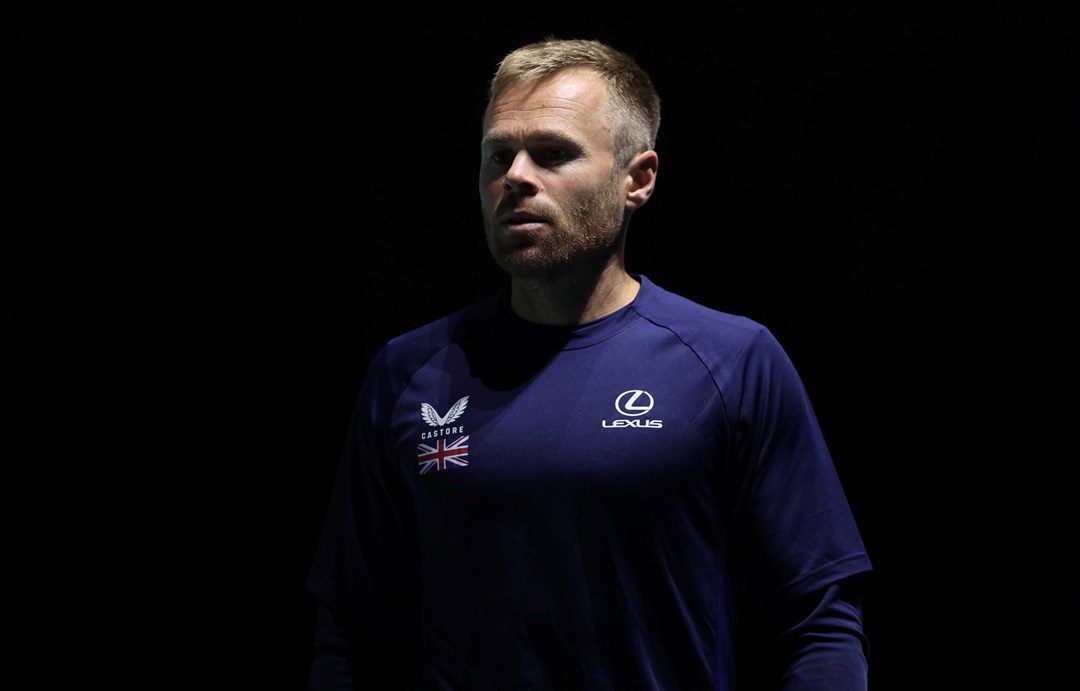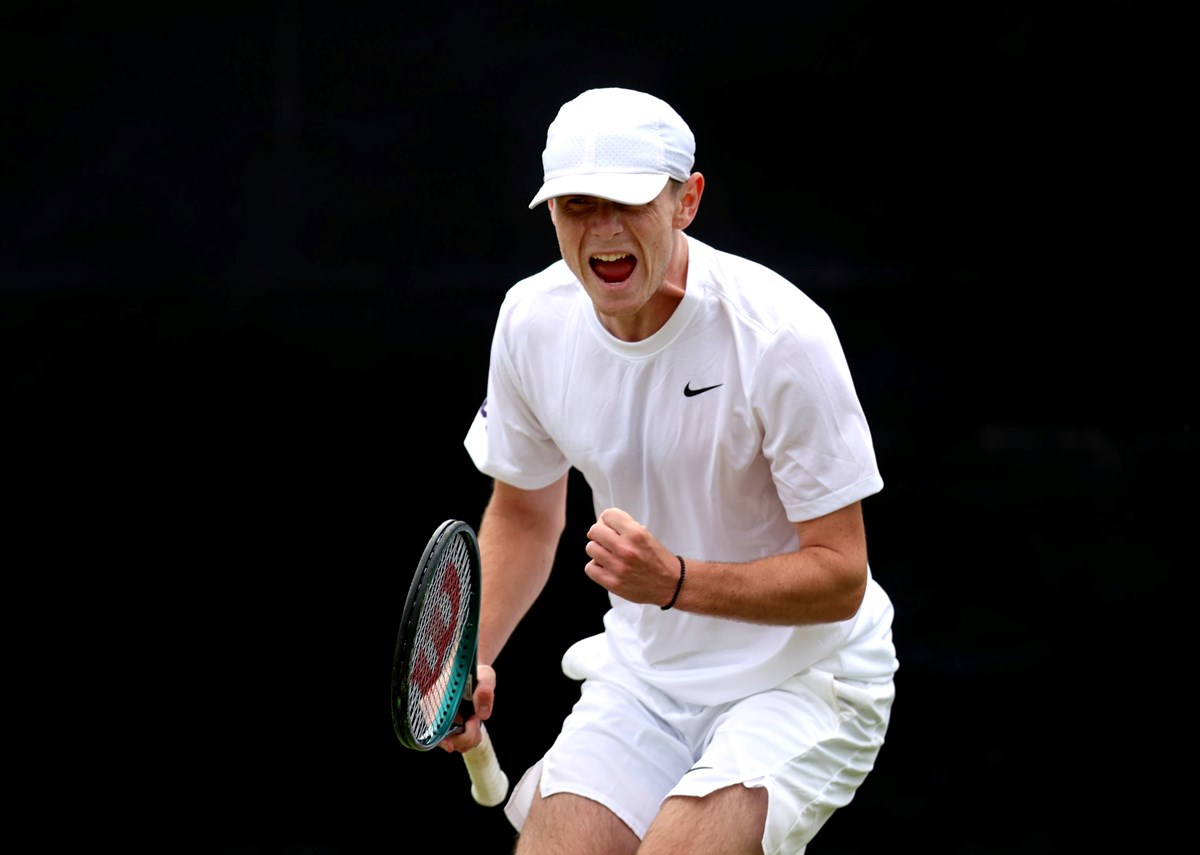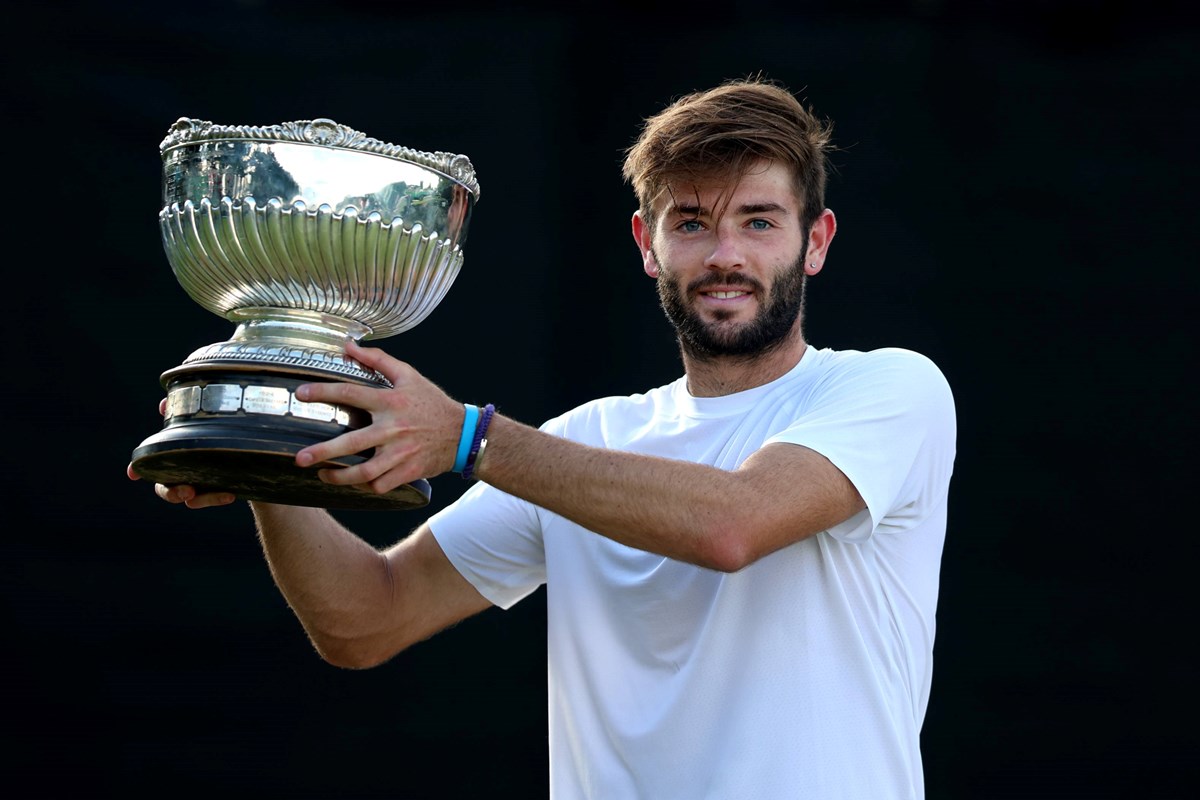
From college to the pro tour – Mark Hilton on LTA NCAA Programme, player development & Jacob Fearnley’s rise to the top 100
• 4 minute read
The journey into professional tennis often looks different from player to player.
Take Great Britain’s most recent entrants into the WTA and ATP top 100 – Sonay Kartal and Jacob Fearnley. Kartal has taken her chances progressing through the lower levels of the ITF circuit before winning her first WTA title last month, while Fearnley elected to study and compete in the American collegiate system (the NCAA) before making the full transition into pro tennis.
The college route to breaking through at the top level of the game is one that is becoming increasingly popular – especially in Great Britain with the likes of Cam Norrie, Fearnley, Neal Skupski, Lily Miyazaki, Arthur Fery, Paul Jubb and Alicia Barnett amongst many who have reaped the benefits of training and competing in that environment.
We caught up with LTA Men’s National Coach, lead for the LTA NCAA Programme and former coach to Andy Murray, Mark Hilton to discuss the advantages of developing your game through college, how the team supports these players from the LTA and Fearnley’s recent breakthrough on tour.
The pathway through the NCAA allows players that opportunity to develop more, become more mature and be in environments that make them more tour ready.
“For the last three years, we’ve made a big commitment to supporting our players competing over in the NCAA,” Hilton said. “It started off as something that we were aware of players coming through at varying degrees, but we saw that more players were choosing that pathway moving forward.
“We did a lot of analysis of players who have been in college and their trajectory from there into Grand Slam qualifying and into the top 100 and for the cohort of players at the top of the game out there, we saw it as an opportunity to support them.”

Making the decision to go and play at a US college at a young stage in your career can have several benefits and we’re seeing that in the players who eventually make that transition onto the tours.
It gives you more time to develop your game and Hilton – who primarily looks after the men’s players on the programme – highlights how shifting trends in career durations make it a more appealing choice for emerging talents from the junior game.
“For players to be pro-ready at 17, 18, 19 is challenging,” he explained. “Not only is it challenging but we have time now – careers aren’t ending in your mid to late 20s, you can play well into your 30s so there’s not as much pressure to come through early.
“If you don’t break through the levels quickly and don’t make that transition as well as you might have expected it can become more difficult as you get older. The pathway through the NCAA allows players that opportunity to develop more, become more mature and be in environments that make them more tour ready. There are players for whom college won’t necessarily work but I think for those coming through now, it would be naïve not to explore the option.
“Players are now coming out of college and making that transition onto the tour and there’s the data now to show that.
“The level of college tennis now is high. Choosing a programme that supports competing in pro events, has great coaching and understands that transition to pro tennis is important. It's a good way to develop your tennis while also getting your education and growing as a person too.
“There are a lot of transferrable skills. In the NCAA these guys play with a lot of pressure at some of the events and the intensity is significant.
“There’s a great example from this summer seeing some of the guys come out, whether it’s Jacob Fearnley, Jack Pinnington Jones, Arthur Fery last year, etc, they look more comfortable playing in that environment because they’ve felt that pressure before playing in front of big crowds. There’s no doubt you’ve seen better composure from a lot of these players on the pro stage.”

During their time in the States, players get to benefit not only from elite coaching environments at the college, but also from support back home from the LTA Performance team – setting them up for what’s to come at the next level.
“We keep in constant communications with the coaches throughout the year, which is really important for us to grow those relationships,” Hilton said. “I will go out to visit them in their training environment to develop relationships with the players and coaching team, whilst also visiting for NCAA championships to see them compete. Our presence throughout the year illustrates how much we value this pathway and has been appreciated by coaches and players."
“An important part of our support is planning our domestic pro calendar so they have opportunities to compete when they are at home to give them a taste for the pro game and and create ranking development opportunities and gain experience for when they come out of college. This can also also influence ranking trajectory that can support these players to reach criteria for our supported programmes - such as Pro Transition Programme and Pro Scholarship Programme – which is ultimately the goal of our best players.
“If there aren’t events then we aim to create opportunities to expose these players to high level training at National Tennis Centre. Last year for example, Johannus Monday was able to train with Andy (Murray) and for him to see and be around someone at that level is really important.
“For players looking into the NCAA as an option for their development, our job is all about informing them of things to consider when making decisions about what college programmes to consider.”

The most recent success to come through our NCAA Programme onto the Men’s & Women’s Programme is Fearnley – who recently equalled Jack Draper’s record as the second Brit to win four ATP Challenger singles titles in one season.
The skills and the experiences playing at Texas Christian University (TCU) – where he won the NCAA Championship this year – have given him the building blocks to launch himself amongst the best players in the game.
“He’s exceeded expectation in terms of his trajectory,” said Hilton. “He came out of school in June coming off the back of some health issues earlier in the year and has now gone on to reach the top 100.
“His composure in certain situations has been fantastic. You just have to look at his results where he’s found a way through matches when it wasn’t easy.
The goal now is to establish himself as a tour player. His aim before the end of the year is to get enough points to make main draw in Australia.
“He’s managed his schedule very well. It’s a different load on these guys when they are at school. It’s more demanding on the body and another way we’ve adapted the programme is to get our (the LTA) medical and physical team to get eyes on them more often to get them more tour-ready when they come out.
“Given the fact that he’s gone through the levels quickly it’s now all about making sure he keeps developing physically so that he’s tour-ready. At this level it’s not just about being able to compete but being able to do it across 25+ events a year against top-level players.
“The goal now is to establish himself as a tour player. Because he played in college from January to May last year, he has a real opportunity to keep picking up ranking points with nothing to defend. His aim before the end of the year is to get enough points to make main draw in Australia.
“We’ve got a few guys who graduated this summer – Jacob is one, but there’s also Johannus Monday who reached No.1 in the NCAA last year, there’s Jack Pinnington Jones who can go back to schools next year but has recently been picking up good results at Challenger level, and also Toby Samuel who is currently rehabbing from injury but made a positive start to his transition to pro tennis.
“That group is really strong but then it’s also about what that next group will look like and the players considering the collegiate route beyond that.”
LTA Performance Pathway
Find out more about the LTA NCAA Programme, our Performance Pathway and how we support players to reach their full potential.





